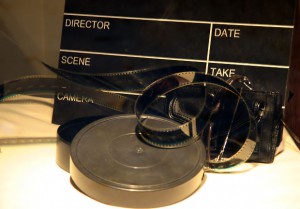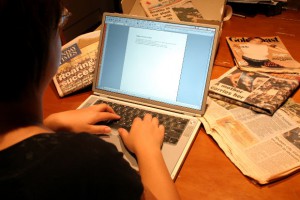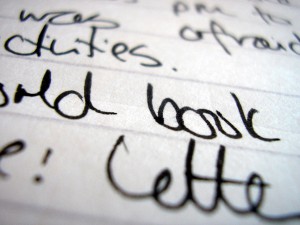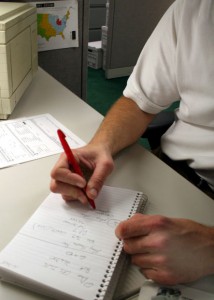

Blog
Welcome to the Busybird blog, where you can find helpful articles, updates, industry news and more. Make sure you stay up to date by signing up to our newsletter below.
Coping.
October 3, 2013 All of us face tumultuous times in our lives. It might be the death of a loved one, the break-up of a relationship, or the loss of a job. Whatever the case, there are always upheavals.
All of us face tumultuous times in our lives. It might be the death of a loved one, the break-up of a relationship, or the loss of a job. Whatever the case, there are always upheavals.
Sometimes, these events can be difficult to process. It’s not just the impact of the trauma, but making sense of the repercussions. The loss of a job, for example, might have financial implications that relate to the well-being of our families, as well as our basic ability to function in everyday society and pay bills everybody else would grumble about but take for granted.
Everybody deals with issues differently. Some charge ahead, without giving themselves time to think, accept, and reconcile what’s gone on. Instead, they bury it deep somewhere where it can bubble away until they’re ready to deal with it – if at all. If you believe in new age gurus and the like, unresolved feelings can manifest into physical ailments.
Others switch off, if not shut out the world, or medicate to dull pain – whether that’s medicating through drugs or alcohol, or even eating, or some other binge behaviour (e.g. shopping). This isn’t so much about coping but desensitizing. The pain remains. We just dampen it until we get used to it.
Few of us truly learn to deal with setbacks, to assimilate them into our lives, and to move on. It’s just not something we’re taught, either by family or in schools. So we stumble, put ourselves back together as we best can, and move on – or at least try to resume moving forward. For many of us, moving forward equates with equilibrium being restored, even though it might not have been.
Art – in any form – is something that allows us try to make sense of what we’re feeling. The reason for this is there’s no wrong or right to the outcome. It’s not like a mathematical calculation, which can have only one right answer. Stories can take any evolution to get to their destination; poets are often flaunting the rules; and painters can be indifferent to precision (as in reproduction) as long as their work captures what they’re feeling.
Put twenty people in a room and tell them all to draw the same black cat, and you’ll get twenty different black cats. Ask them to describe that same room, and there’ll be twenty different interpretations. We all think differently, view the world differently, and express ourselves differently. We are unique and no matter how similar two people can be – consider identical twins – they never are.
When you do face problems in your life, art is a perfect way to explore what you’re feeling and to try to make sense of it all. Art can deal with abstracts and help conceptualise them into manageable (or at least understandable) commodities. Moreover, art can help us find our way, to deconstruct our turmoil and reconstruct it into something we assimilate and accept into our lives. Nothing else works on quite the same level.
Next time you face a setback and are wondering how to cope with it, give art a try.
To that end, Busybird will also be hosting a Creative Arts workshop beginning Tuesday 8th October. The workshop will run for eight weeks, with three hours per session, and explore your relationship to stories through different mediums – painting, drawing, sculpting, journaling and collage – with a qualified art therapist. Feel free to email or phone us with any queries or bookings, or you can book via Eventbrite by clicking here.
LZ.
Adaptation
September 26, 2013 It’s interesting to note changes that are applied when books are adapted for the screen.
It’s interesting to note changes that are applied when books are adapted for the screen.
Usually, some of these changes are a result of condensation. A novel might have four hundred pages to tell a story, and has the opportunity to be languorous, teasing subplots and drawing on an ensemble of characters. An adaptation might decide to collapse some of these subplots, e.g. an adaptation character might assimilate the arcs of two (or more) characters from a book.
In JRR Tolkien’s The Fellowship of the Ring, the Elflord Glorfindel meets Aragorn and the Hobbits on Weathertop after Frodo is stabbed. Following this, Glorfindel doesn’t feature much more in the story. He’s there to demonstrate the futility of power in the battle of the Ring. In the movie, Glorfindel is cut entirely. Elrond’s daughter, Arwen – Aragorn’s beloved – takes his role, which serves to introduce her as a character (in the books she barely figures) and also furthers the relationship subplot between her and Aragorn.
Conversely – and usually as a matter of a expediency – sometimes subplots are eliminated entirely. In Peter Benchley’s Jaws, oceanographer Matt Hooper actually has an affair with Chief Brody’s wife, Ellen, resulting in tension between Hooper and Brody when they go to sea to hunt the shark. No such subplot in the movie.
Some changes would seem a result of largesse, as if the filmmaker is trying to wrest some ownership over the source material. I’m sure their counter would be that the changes are essential, a way of interpreting the book that the material otherwise did not allow them. An interesting (although almost impossible exercise) would be to see how two different people interpreted the same material for the screen.
But screenwriting – as an art-form, (even if lots of Hollywood movies today are about as far removed from art, and form that matter, as possible) – is an exacting taskmaster where you’re required to work within strict and (in some regards) restrictive parameters.
A great example of the differences is introspection. In a book, your character can think about what’s happened. Back-story can be introduced simply by memory. In fact, sometimes writers get carried away with the freedom to digress and provide all the information required to arm the reader with as much knowledge as they need to navigate their way through the story.
How do you communicate the same information in a film? The easiest answer is voiceover. A voiceover allows a character to tell the viewer everything they need to know. An alternative is a text crawl, e.g. think of the Star Wars franchise, and how the stories are set up by the scrolling text at the beginning of each film. But these are almost cop-outs. Narration is descried in screenwriting, while a text crawl – ironically – relies on providing information the same way a book would.
Whilst an adaptation can remain faithful in many ways, in others logistically it’s impossible. Some adaptations suffer from a failure of translation. Others excel. Some (few) are better, belying the catchcry of, ‘The book’s always better.’ Probably most of the of the time. But not always.
Think about something you’ve written (or are writing), and how it would work as a film. Given the opportunity, how would you translate it? A conversation between two or more characters that unfolds over ten pages might be captivating in a book, but ask an audience to sit through ten (or even five) minutes of conversation, and most are likely to switch off.
How about a scene where your protagonist breaks up with their partner and stays heartbroken in bed for two weeks? In a book, you can accomplish this in a couple of sentences. But how would you relay the same information (and same passage of time) in film?
Adaptation is an interesting exercise, and can actually help develop your filter for tight writing.
LZ.
Just Write.
September 19, 2013 Lately, we’ve put up blogs about how to improve your writing, how to get the best out of your writing, and that sort of thing. We haven’t really put up anything about how to write, though. The reason for this is simple.
Lately, we’ve put up blogs about how to improve your writing, how to get the best out of your writing, and that sort of thing. We haven’t really put up anything about how to write, though. The reason for this is simple.
There is no ‘how to do it’ that will suit everybody.
There are no lessons where somebody can be sat down and taught how to place one word after another, how to string sentences together, how to unfold paragraphs to tell a story, how to tell the story itself, when the best time to do all this is, what the aim should be everyday, etc.
Sure, education can give you pointers about what might work. Editing can help establish parameters, can show you what you can flesh out and what you can prune. But as far as the act of writing itself goes, you can only learn through doing it and finding your own way.
It’s important to absorb as much information as possible to accomplish this. Do all the things we’ve suggested. Find ideas that appeal to you. Read books about writing; study; read and read and read; workshop; and get your writing edited or appraised; take this galaxy of information and assimilate it, but then it’s only through writing that you filter techniques that work for you.
Don’t get disheartened either by listening to the successes of others. Somebody might tell you they write one thousand words a day. Wow. One thousand words. Great. Fantastic. Awesome – for them. You might work at a more sedate pace and produce only one hundred words a day. That doesn’t make your efforts any less valid.
Or you might hear from somebody how they get up at 6.00am and write for half an hour before they get ready to start their day. Again, great – for them. You mightn’t be a morning person. Your head mightn’t start ticking over until afternoon, or even evening. Don’t beat yourself up if you can’t follow the same routine. Even if your life isn’t dissimilar to this person (e.g. you might both work full-time, be married and have two kids) YOU are dissimilar. We’re not on this Earth as clones. Every one of us is unique.
You just need to do it. Don’t talk about doing it but never do it. Don’t wax lyrical about all the great novels you plan to write and then never get a single word down for any of them. Don’t regale yourself with fantasies of your successes, book tours, and interviews on Oprah, but never actually pen a word.
Don’t (and excuse the English) NOT do it, and definitely DON’T compare yourself to the successes of others and allow those to intimidate or overwhelm you into inaction, or into making you feel inferior, or as if it’s all hopeless.
We all find our own way, and we do so with the intent of telling the stories we want to tell, that only we can tell, and not for the fame or glory or riches (although obviously that stuff would be nice), but because inherently it’s something we want to do, need to do, and love to do.
Let your writing take you where it will. Find the habits that suit you (and your lifestyle). Write as much as you can in the time you have available. But do it. Do it and find out the writer you are, the patterns you need to observe, and the techniques that help you get the best out of yourself.
Most of all, just write.
And be proud of yourself doing it.
LZ.
Improving Your Writing.
September 13, 2013 If you’re a writer and serious about improving your craft, there are various ways you can accomplish this.
If you’re a writer and serious about improving your craft, there are various ways you can accomplish this.
10. Get an Assessment/Edit
There are experts out there who offer this service. If they’re good at their job, they can point out exactly what you need to look at in your writing – plot, characterization, voice, grammar, punctuation, etc. If you have writing idiosyncrasies (and we all do) you can even apply some of this information to your other projects.
9. Courses
Look hard enough and you’ll find courses suitable to your needs. These can range from tertiary courses that have classes specializing in various fields (editing, shot story writing, novel writing, etc.) to short courses aimed just at specifics. One of the benefits of courses is setting assignments and deadlines that force you to write and meet word limits – always a motivator for the habitual procrastinator.
8. Industry Talks
Look for them. Tertiary courses often have talks from industry professionals – publishers, writers, editors. These can be open to the public. Otherwise, check out your local library, e.g. the Yarra Plenty Regional Library often run FREE sessions hosted by editors, writers, etc. Listen to what people in the industry have to say.
7. Books About Writing
They’re out there. Stephen King’s On Writing isn’t so much a technical guide, but an insight into what to expect and what you need to do. It is one of the better ones. There are tons of others. Some contain practical tips, some contain exercises, some teach you (particularly if your craft is screenwriting) about industry expectations.
6. Writing/Workshopping Groups
Find a writing group. Here, you’ll get together with other writers and talk about writing, and also workshop material. Workshopping is an invaluable tool. Fresh perspectives can identify issues you’ve become blind to – always a potential hazard when you’ve worked on something so long you’ve lost all objectivity.
5. Develop a Writing Kliq
Taking that workshopping group one step further, form a kliq with other writers whom you respect. Exchange stories. Be brutally honest with one another. Don’t be satisfied with your partner’s review of, ‘It’s good,’ or your mum telling you, ‘It’s the greatest thing ever!’ These last two steps involve finding people who can be honest and constructive with you, and who also have an understanding in the craft of writing.
4. Fellowships
There are some great fellowships out there – the Olvar Wood Fellowship Award, Varuna, the Hachette Manuscript Program, just to name a few. If you win a fellowship (they’re run like competitions), you’ll go up to wherever it’s run, live there for a period, write and get mentorship from industry professionals. Some of the mentorships are ongoing, and will see you to the end of your project. Fellowships also look great on your CV.
3. Submit
Submit your writing. In all likelihood, you’ll face a rejection or two. Most of these rejections will be form, where all they do is fill in your name and tell you that your work is not suitable for them, but wish you all the best in the future. Some few will give you feedback (which is always encouraging if they’ve taken that time), or are set up in a way that for a small fee they might offer some constructive criticism. Those tidbits you do get can really help identify areas that need improvement.
2. Read
See how other people tell their stories – people who’ve made it in the business, whether that’s somebody as commercial as Stephen King or JK Rowling or Jodi Picoult, or as renowned in the literary community as F. Scott Fitzgerald or Ernest Hemmingway or William Shakespeare. Don’t believe you have all the answers, that your talent is ready-made and everybody will fall to their knees in awe. Lots of great writers have put pen to paper before you. Learn from them – how they construct a sentence, how they shape a paragraph, how they carve out a character, how they build a plot. Learn from the bad writers, too. See what they’ve done wrong. Don’t ever – not even for a moment – think that you can become a writer without being a reader.
1. Write
There are so many ‘writers’ out there who talk about being a writer, who talk about the stuff they’re going to write, who never actually write. Or they write starts to lots of things, but never actually complete anything. If you’re doing this you’re not a writer.
Write! Even if you think it’s crap, write! Finish those stories! Complete those books! Use those exclamation marks! It’s only through writing that you develop your craft, find your voice, and learn how to tell your stories.
Larry Donner (Billy Crystal) said it best in Throw Momma from the Train: ‘A writer writes – always!’
Just keep in mind there’s no secret formula, (outside of an observance of grammar, punctuation, etc.). Rafael Nadal sitting me down and explaining everything he knows about tennis isn’t going to make me a champion tennis player. You learn mostly from doing.
LZ.
Some random writing tips.
September 6, 2013 Trying to write but can’t get started? Or it’s just not working? Here’s some random tips to consider.
Trying to write but can’t get started? Or it’s just not working? Here’s some random tips to consider.
1. It’s all right.
As has already been mentioned in this blog, don’t be too judgemental of your first drafts (or any draft, for that matter), even if they seem ugly to you. They provide raw material to work with. Once you have it out there, it’s easier to decide which way to take it – what works, what doesn’t, what can be explored further, and what’s overdone.
2. Take a step back
Let’s say you’re just about to write a dramatic scene in which your protagonist finds out he’s adopted. You have the idea in your head: he finds the adoption papers in his parents’ bedroom. Yet you can’t get it started. Everything you try doesn’t work. Pull back a step. Instead of starting the scene in the bedroom, start it when the protagonist first comes home. Or when he’s cycling home from school. Or during the last class at school. The point is to change the angle on what’s happening. It helps to provide a different hook into your world. Sometimes, you’ll get better material out of it. Other times, all you might get is a warm-up (to be cut later) back into the big scene
3. Write every day
Writing’s about momentum. Don’t write, and it gets harder to get started. Write, and your ideas snowball, you’ll look more and more forward to your next session, your story will progressively reveal itself. As an aside to this point, don’t besmirch limited time – if you have only fifteen minutes, don’t look down at it as not enough. Use it. It adds up.
4. Have your own writing space
And make sure people know it’s yours. This might be hard if you have a two-year-old constantly wandering in, but otherwise set up your own little writer’s retreat. Fill it with whatever you need to put you in the mood. If there’s people in your life – e.g. partner, family, housemate – old enough to understand the significance of this space in your life, make sure they respect it.
5. Mood music
It helps. You might have a sad scene – a tragic death. Throw on some Beethoven. You might be writing a Young Adult drama. Throw on some pop. The right music can help attune your thoughts and put you in the right mood for whatever you’re writing.
6. There is no right way to write
You might look at somebody who maps out every step of their story and wonder whether you should do the same. Or perhaps you don’t write your story chronologically, and are debating whether you should because that’s what everybody else does. There is no right way to write. What works for one mightn’t work for another. Do what works for you.
7. Push
If you have writer’s block, push through it. Similarly to the previous point about taking a step back, come at it from a different angle. Don’t throw your arms up in resignation and surrender to writer’s block because it’s fashionable, or it’s cool to martyr yourself to other writers that you’re suffering the most traumatic writer’s block imaginable. A lot of times, if you try, you will be able to push through. Don’t accept that the block is impenetrable.
8. Finish what your start
It’s easy to start stories. That’s when your excitement’s bubbling – the idea’s fresh in your head, bursting to come out, and you’ve probably thought and thought about how it begins or have been eager enough to just blurt it onto the page. Great. But that enthusiasm wanes. Writing gets hard as you hit flat spots, as you have to move the character from Point A to Point B, and the journey itself isn’t appealing. For many, it’s much easier to start something new and exciting. No. Finish what you’ve started. There’s not much that can be done with a half-completed story. If there’s a journal or publisher out there who says, ‘We want your half-finished piece, send it to us!’ I haven’t encountered it yet.
9. The journey can be exciting
So, hypothetically, Point A is a man quits his job in disgust and leaves work early. Point B is he comes home to find his wife in bed with the neighbour. Both dramatic scenes. And sometimes, the journey from one to other might suffice as, ‘He went home.’ But think about the journey. You can get some great stuff out of it at times. You can set the character’s mood, build their mindset, explore circumstances – lots of cool stuff which might go unexploited just because you always want to hit those high points.
10. Write what you love
This is a belaboured point, but write the story you want to tell. If you really want to tell that space opera, then right that space opera. Don’t write the novel about the sparkling vampires simply because you think there’ll possibly be a few bucks in it. Writing is expression and creation. Express and create your passions.
LZ.
